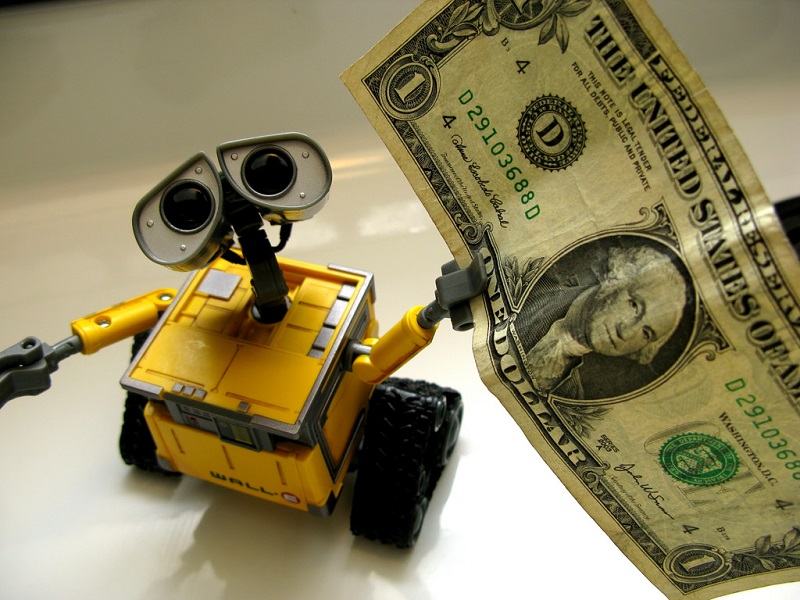 NEWS
NEWS
 NEWS
NEWS
 NEWS
NEWS
From loan officers to data analysts to financial advisers and the automation of the back end finance processes, automation is making an impact on the finance industry with greater advancements to come in the next decade.
For an industry that is based on processing information, it is of little surprise that the finance industry faces a huge threat from automation. According to research by Oxford academics released in late 2013, they suggested that the financial industry had more jobs, approximately 54 percent, at high risk compared to any other skilled industry.
Automation of jobs is happening right now and as machine learning progresses, more and more higher-paying jobs, like the medical industry, which we previously thought immune, are starting to be altered.
This market snapshot will look at what impact automation is having on the finance industry, with a particular focus on the back-end finance processes after a Q&A session with Steve Palomino, Director of Finance Transformation at Redwood Software. We also look at whether the advantages of automation in the finance industry outweigh the disadvantages and how bright or cloudy the future looks for the human workers.
When asked about the impact of robotic technology on the finance industry, Palomino said, “The greatest advancement in robotics is the ability to more easily pull together processes and execute them against various sets of data or systems. This will ultimately create more capacity for the individuals who perform those tasks. Moving forward, laborious, manual and menial activities will be completed for the finance professional. The person in the role will see some relief around controls and audit as that process will be performed without error by the robot.”
Automated investment services or robo-advisers are attracting plenty of attention, and people using robo-advisers are no longer limited to small investors or millennials. According to Aite Group, investments in automated portfolios rose by 210 percent between 2014 and 2015. While the $50 billion invested is a drop in the ocean when compared to the $20 trillion wealth management market, it does indicate advancement towards automated portfolios.
With banks and brokerages under constant pressure to reduce fees, robo-advisers, which provide online investment advice using computer programs, offer reduced fees for clients, traditionally less than half compared to a traditional brokerage.
In November 2014, Goldman Sachs Group Inc.’s principal strategic investment group led a $15 million round in Kensho, a data analytics startup. Kensho’s software will ultimately reduce the need for human decision-making when it comes to investing and trading. The machine’s software is able to analyze an abundance of data that impacts the market, including weather, natural disasters, political elections, and wars. The Kensho software is also able to broaden the search terms with little human intervention. While Kensho hasn’t been responsible for human layoffs yet, it’s likely just a matter of time before human jobs are replaced or altered considerably by the Kensho software or similar automation software products.
Palomino feels the advantages of automation in the finance industry definitely outweigh the disadvantages. “The advantages will be 100 percent accuracy, completeness and timeliness. Speed of processing data and ultimately the ability for the organization to see root causes of error and change those processes. Enhanced processes and understanding will also result from the use of robotics.”
Over the next decade, Palomino feels the finance industry will see “significant advancements in the implementation of robotics.” However, this doesn’t mean a dire outlook for anyone currently in the finance industry or planning to enter it.
Palomino spoke about the concerns facing companies and the questions they have regarding what they will do with their finance teams’ processes get robotized. His response is that “As more and more business stakeholders have access to accurate, complete and timely data, not only will there be more finance positions available, but these will be transformational roles like data analysts, risk and controls managers, business analysts and more. These roles fit very well with the new millennial workforce, which is more likely to embrace robotics as they are looking for more meaningful, value added work. So the human’s financial jobs will not disappear, rather the job will merely be altered.”
We will have to wait and see exactly how roles in the finance industry will be altered, but what is guaranteed is that automation will definitely be able to take over many mundane tasks currently be completed by humans in the finance industry.
Support our mission to keep content open and free by engaging with theCUBE community. Join theCUBE’s Alumni Trust Network, where technology leaders connect, share intelligence and create opportunities.
Founded by tech visionaries John Furrier and Dave Vellante, SiliconANGLE Media has built a dynamic ecosystem of industry-leading digital media brands that reach 15+ million elite tech professionals. Our new proprietary theCUBE AI Video Cloud is breaking ground in audience interaction, leveraging theCUBEai.com neural network to help technology companies make data-driven decisions and stay at the forefront of industry conversations.